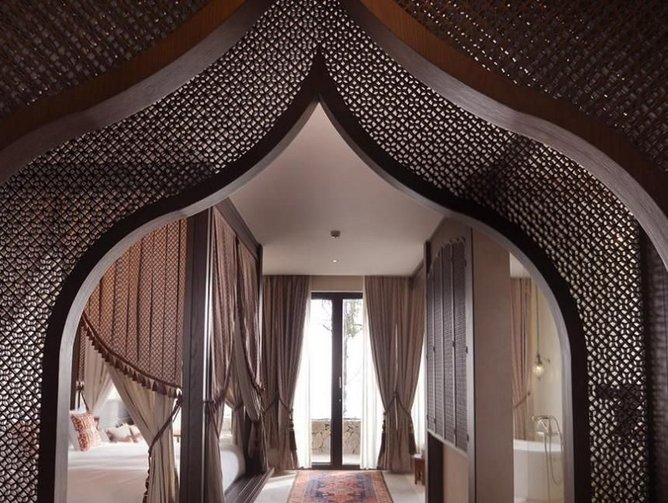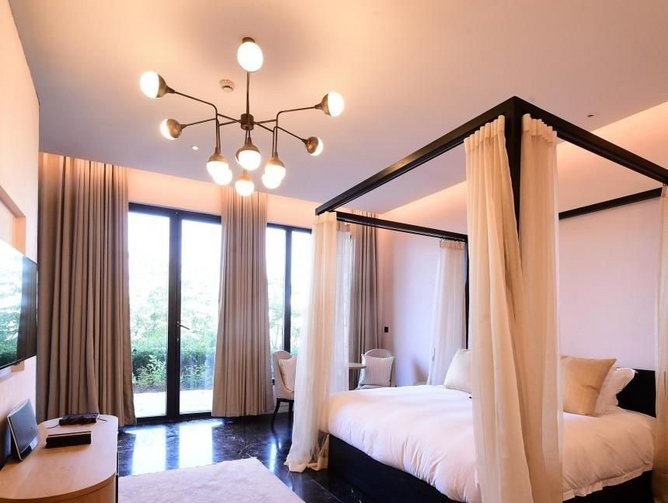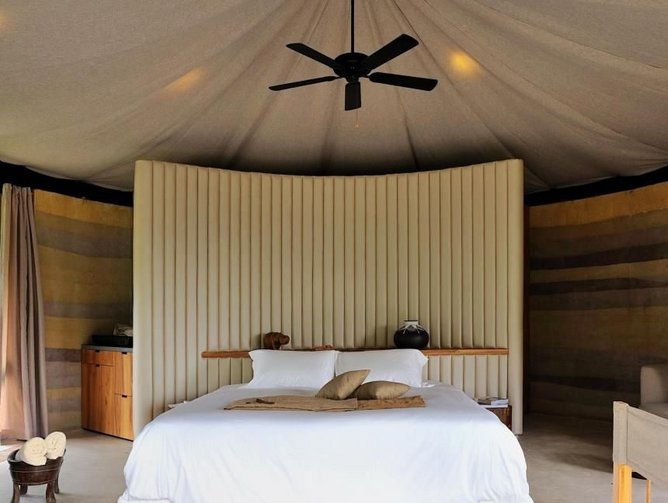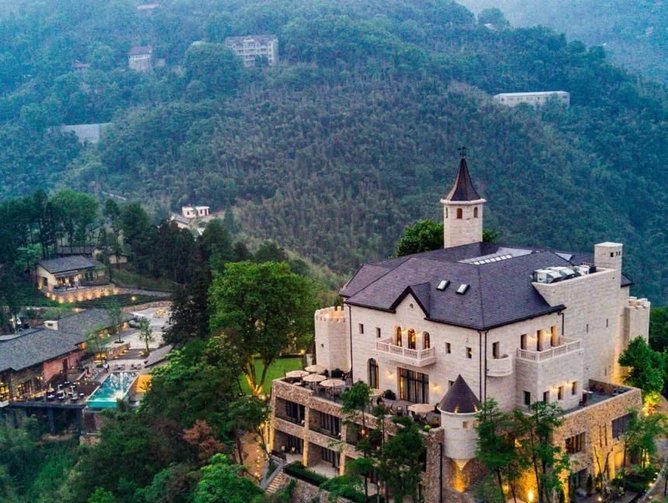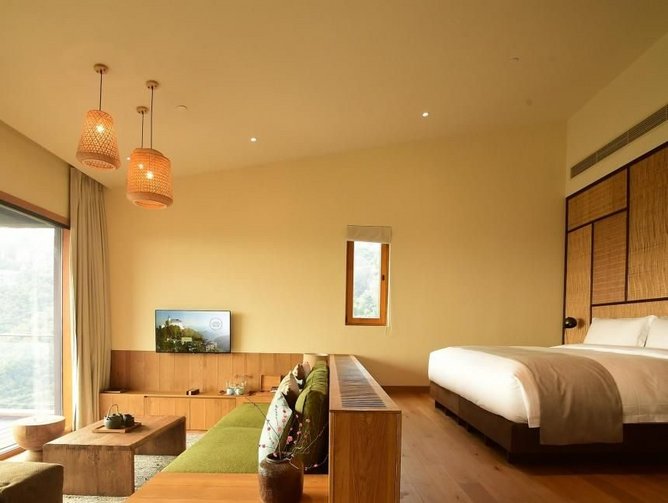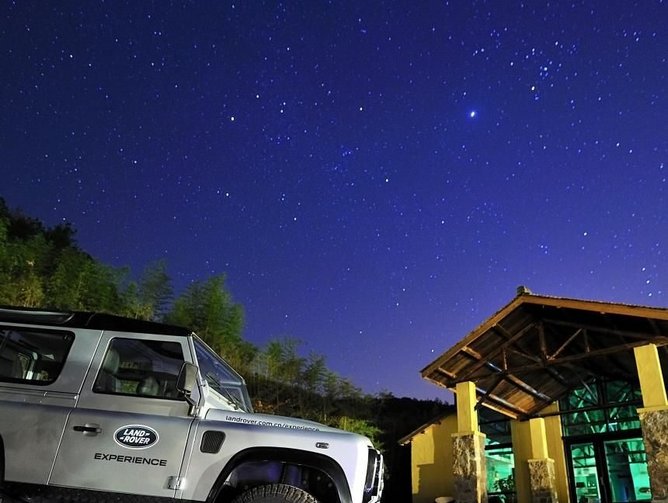
naked Retreats: spearheading sustainability in the Asian hospitality market
For those wanting to relax, switch off their phones and reconnect with nature then you need look no further than naked Retreats. Offering immersive local experiences in the picturesque hilltops of mainland China, the 12-year-old hospitality company has etched a unique path in the travel world. Today, naked Retreats operates two retreats in Zhejiang province, naked Stables and naked Castle, with several more in the pipeline set to take the naked experience across China. The company has high aspirations: it wants to redefine how we connect with people, places and nature. “We try to take people out of their normal routines and help them switch off their minds so that they can reconnect with nature,” explains Paul de Vreede, VP of Sustainability and Strategic Initiatives. Even the company’s name ‘naked’ alludes to the idea of connecting with nature. “In Chinese the name is Luo Xin, which means ‘naked heart’,” adds de Vreede.
Championing what the company describes as 'wild luxury' – where visitors enjoy nature but experience luxurious hospitality at the same time – guests can be sure of a one-of-a-kind experience at naked Retreats. “You can ride a horse, for example, or pick tea in our tea field,” says de Vreede. “There’s always something to do.” Yet, whilst you’re bound to have an unforgettable stay, perhaps one of the most distinguishable hallmarks of the retreats is their meaningful, sustainable vision. Whilst the company goes above and beyond to provide a memorable getaway, it does so in a pioneering fashion which isn’t detrimental to the environment. “Sustainability has been a part of our DNA since day one,” observes de Vreede. Indeed, whether it’s reducing waste through compost and recycling or purchasing local produce, this green way of thinking is vital to the business.
Energy efficiency has always been a priority for the hospitality industry. However, in recent years, it’s been afforded a new urgency as consumers have become increasingly aware of the catastrophic nature of climate change. naked Retreats has taken this challenge on since its genesis, ensuring that the building envelope of its retreats is able to preserve energy injected into the building. “The building envelope is very important,” stresses de Vreede. “You can buy high-tech heating equipment but if the heat flows out of the building through the walls, windows or roof then it isn’t productive. We use several techniques to ensure heat transfer is minimal.” Elsewhere, the firm is using geothermal borehole systems which heat the soil and rock underneath, turning the ground below into a heat reservation ‘tank’. “We collect heat from the buildings in the summer, store it underground and then we retrieve it again in the wintertime,” de Vreede explains. “This means we re-utilise 70% to 80% of the heat we use.” Additionally, the company uses LED lighting and thermal solar collectors in a bid to save energy. For instance, at the naked Stables retreat, PV solar panels are installed on all 30 Tree Top Villa rooftops, saving 374 tons of CO2 emissions.
It’s clear that naked Retreats has taken a forward thinking approach to its energy consumption – and it’s also getting guests involved. “With the naked Guestroom Energy Monitoring System, we allow guests to see how much energy and water they’re consuming,” notes de Vreede. “We leave it in the hands of the guest to decide how much energy they want to consume and reward them if they control their consumption.” naked Retreats is keen to champion water efficiency and as a result, it abides by the mantra: ‘reduce, treat and reuse.’ As such, a daily average of 180 tons of water is biologically treated in each retreat and fully re-used for irrigation and flushing toilets, with the remainder being released into surrounding wetlands for ecological balance.
Sustainability not only defines operations at naked Retreats, it has also shaped the design and build of each retreat. For instance, naked Stables was the first retreat in China to be awarded LEED (Leadership in Energy and Environmental Design) Platinum status, the highest possible certification buildings can receive. On top of this, the hospitality firm also uses local materials, traditional crafts and state-of-the-art construction techniques to ensure that all construction is executed in a sustainable way. “We use materials like structurally insulated panels (SIPs) which reduces heat loss, as well as autoclaved aerated blocks,” explains de Vreede, noting how all products are chosen for their aesthetic value as well as their reduced environmental impact.
Recognising that guests may wish to get from point A to point B quickly, naked Retreats has also ensured transportation is green by offering electric carts. However, de Vreede highlights that the company didn’t want to implement carts which use lead-acid batteries because they “don’t last very long and need replacing often”, which is not environmentally friendly. Instead, the firm adopted electric carts which are powered by “Ultra-Capacitors” – an eco-friendly alternative which can be fully recharged in 12 minutes and last more than 20 years without replacement or maintenance.
Developing a sustainable hospitality firm from the ground up is no easy feat; it takes a deep understanding of the hotel world as well as a clear grasp of the complexities of sustainable design and operations. As a result, de Vreede says that the business has not only tried to employ local people who have an innate appreciation of the native environment, but it has also forged meaningful relationships with companies which share a similar vision. “We have several strong strategic partners including Jaga, who provide products like heat pumps, as well as Kohler who create water fittings, taps and showers which promote low water usage,” he says. These deep-rooted relationships have meant that every decision at naked Retreats, from the food on your plate to the retreats’ design, has been made with sustainability in mind.
The Chinese hospitality market has gone from strength to strength in recent years, and with several new properties in the pipeline, naked Retreats has cemented itself as a key player in the market – but what is the secret to the firm’s success? “I think increasingly people are looking for more of a meaningful travel experience,” reflects de Vreede. “By going to a green retreat, guests feel like they’re supporting the planet. At naked Retreats, we’re committed to recycling, energy and water efficiency and a variety of other sustainability initiatives. We educate people and empower them with knowledge so that they can be more aware of how they live and treat their surroundings.
“We feel we are making a contribution to the world by developing this kind of retreat – one which has a minimal impact on the environment and promotes maximum sustainability. We welcome others to share this vision because it will only benefit the world.”
